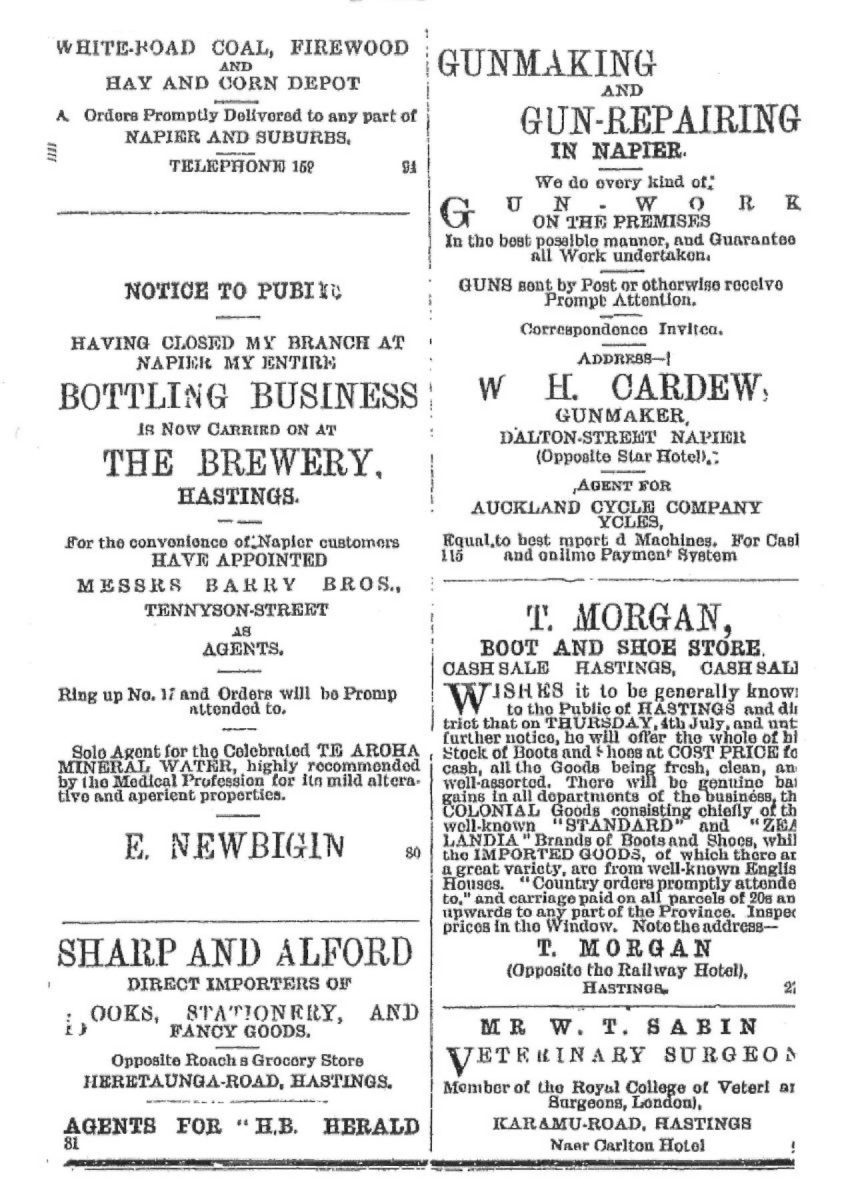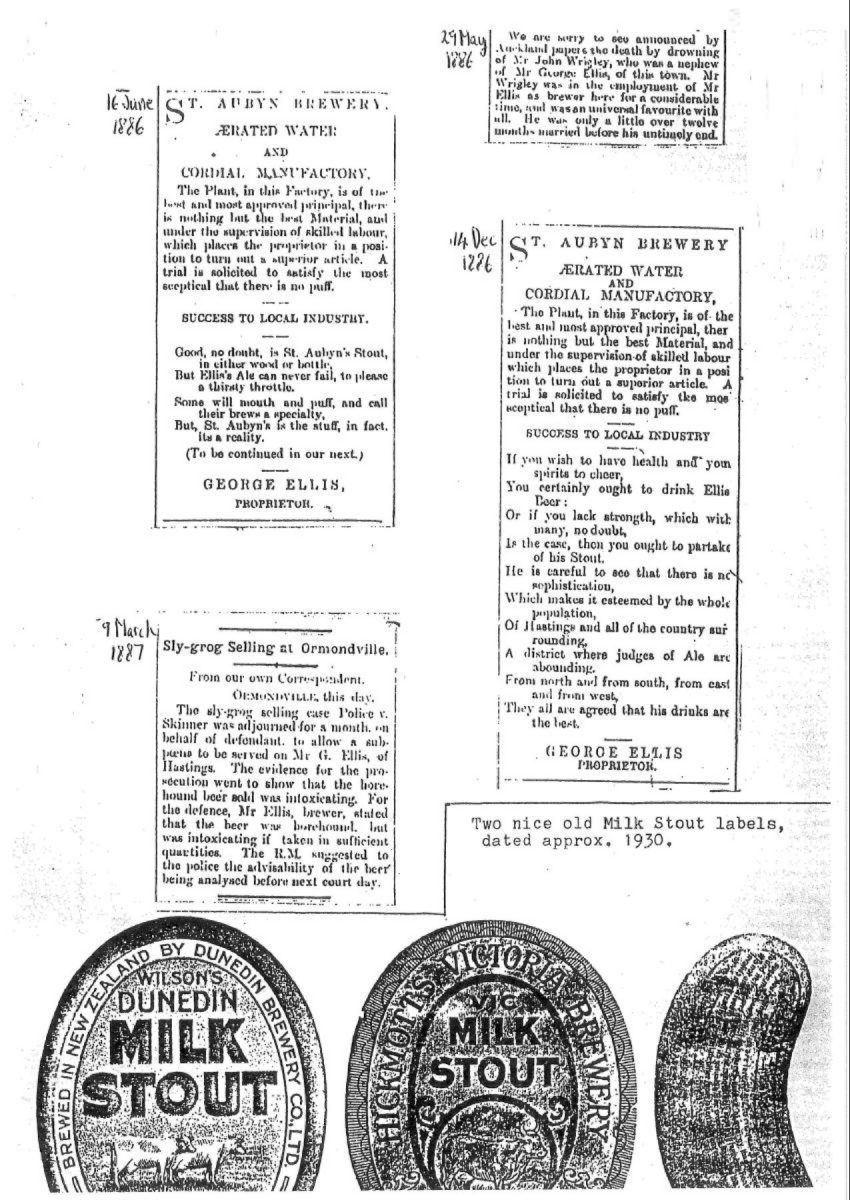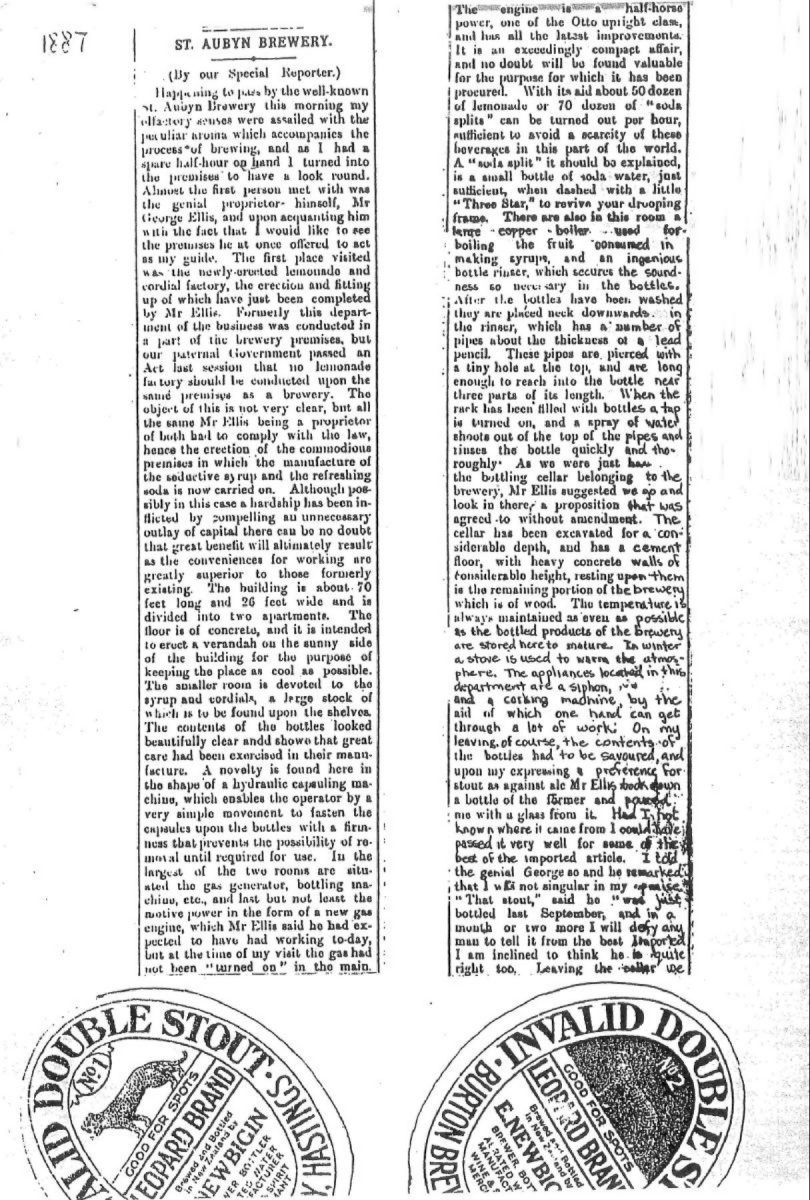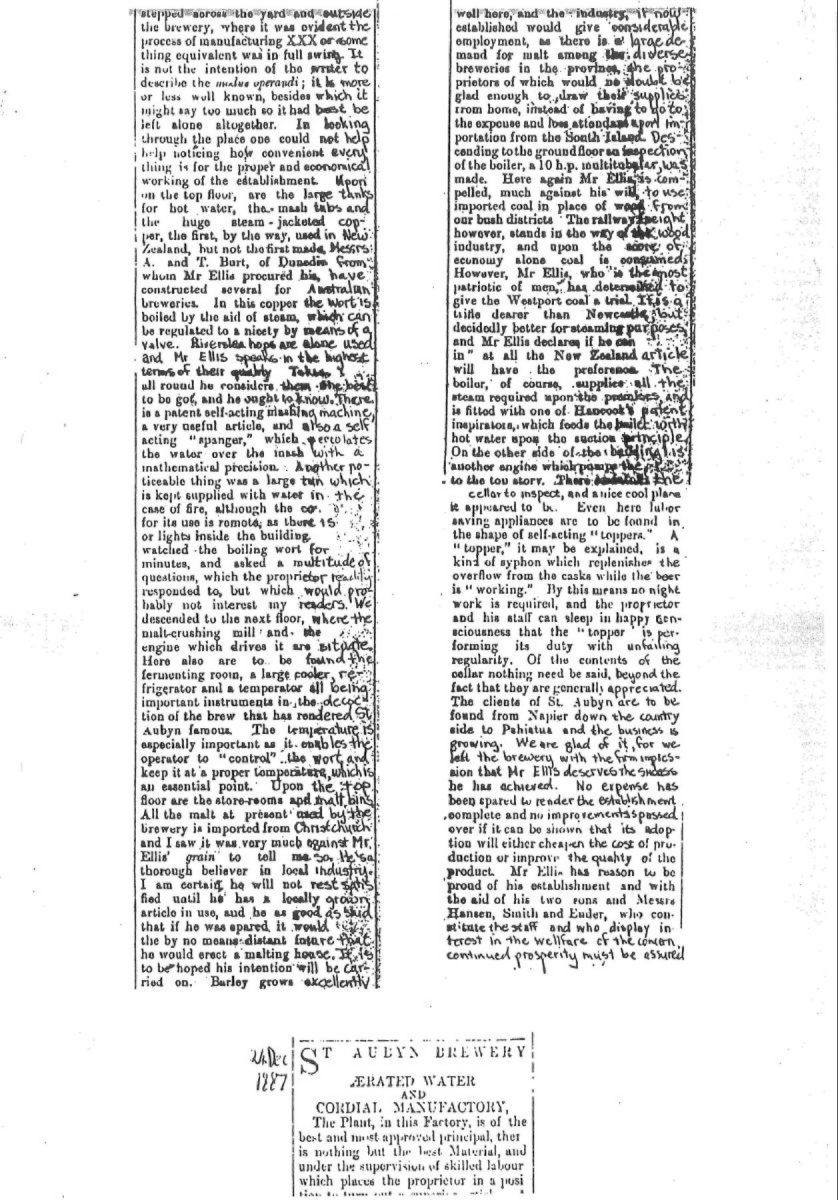16 June 1886
ST AUBYN BREWERY.
AERATED WATER AND CORDIAL MANUFACTORY.
The Plant, in this Factory, is of the best and most approved principal, there is nothing but the best Material, and under the supervision of skilled labour, which places the proprietor in a position to turn out a superior article. A trial is solicited to satisfy the most sceptical that there is no puff.
SUCCESS TO LOCAL INDUSTRY.
Good, no doubt, is St Aubyn’s Stout, in either wood or bottle,
But Ellis’s Ale can never fail, to please a thirsty throttle.
Some will mouth and puff, and call their brews a specialty,
But, St Aubyn’s is the stuff, in fact, its a reality.
(To be continued in our next.)
GEORGE ELLIS,
PROPRIETOR.
9 March 1887
Sly-grog Selling at Ormondville.
From our own Correspondent.
ORMONDVILLE, this day.
The sly-grog selling case Police v. Skinner was adjourned for a month, on behalf of defendant, to allow a subpoena to be served on Mr G. Ellis, of Hastings. The evidence for the prosecution went to show that the horehound beer sold was intoxicating. For the defence, Mr Ellis, brewer, stated that the beer was horehound, but was intoxicating if taken in sufficient quantities. The R. M. suggested to the police the advisability of the beer being analyzed before next court day.
29 May 1886
We are sorry to see announced by Auckland papers the death by drowning of Mr John Wrigley, who was a nephew of Mr George Ellis, of this town. Mr Wrigley was in the employment of Mr Ellis as brewer here for a considerable time, and was an universal favourite with all. He was only a little over twelve months married before his untimely end.
14 Dec 1886
ST AUBYN BREWERY.
AERATED WATER AND CORDIAL MANUFACTORY.
The Plant, in this Factory, is of the best and most approved principal, there is nothing but the best Material, and under the supervision of skilled labour, which places the proprietor in a position to turn out a superior article. A trial is solicited to satisfy the most sceptical that there is no puff.
SUCCESS TO LOCAL INDUSTRY
If you wish to have health and your spirits to cheer,
You certainly ought to drink Ellis Beer;
Or if you lack strength, which with many, no doubt,
Is the case, then you ought to partake of his Stout.
He is careful to see that there is no sophistication
Which makes it esteemed by the whole population,
Of Hastings and all of the country surrounding,
A district where judges of Ale were abounding.
From north and from south, from east and from west,
they all are agreed that his drinks are the best.
GEORGE ELLIS
PROPRIETOR.
Two nice old Milk Stout labels, dated approx. 1930.















Do you know something about this record?
Please note we cannot verify the accuracy of any information posted by the community.